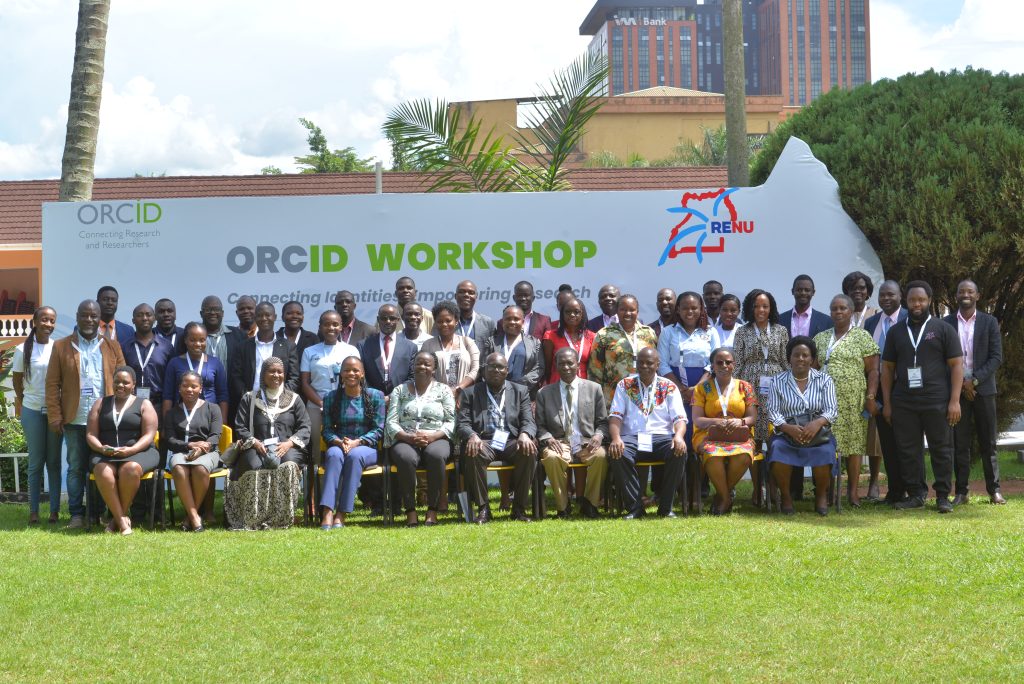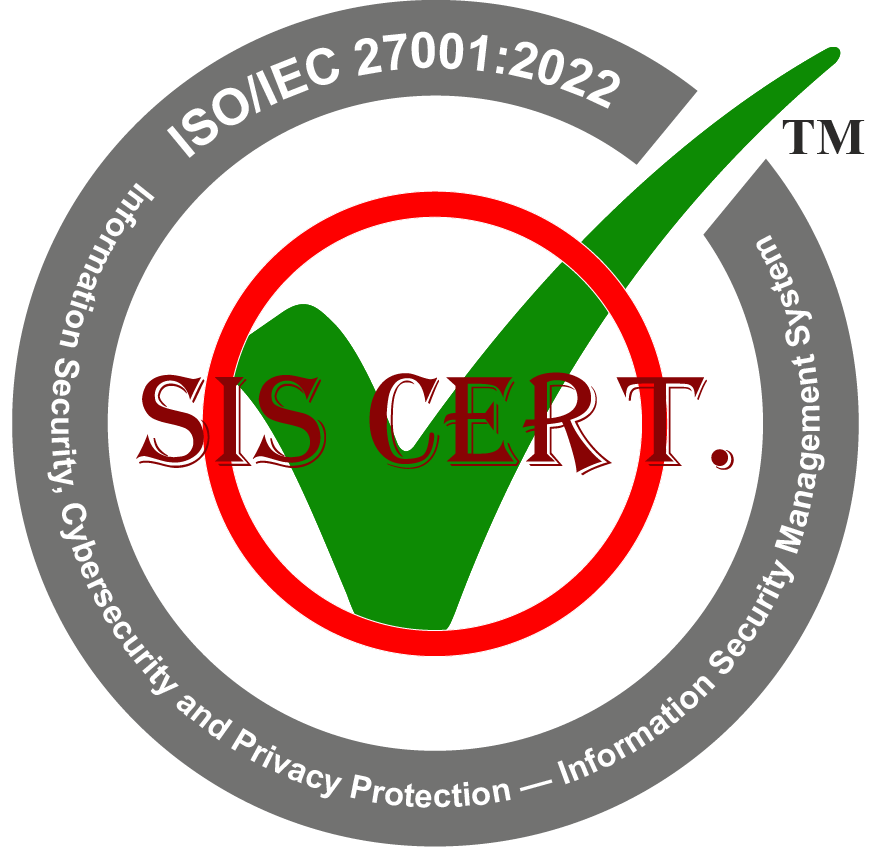The Research and Education Network for Uganda (RENU) is pleased to announce the launch of Uganda’s Open Researcher and Contributor ID (ORCID) Consortium, a national initiative that brings together research and education institutions to strengthen the visibility, integrity, and accessibility of Ugandan research.
The ORCID Consortium of Uganda offers institutions a cost-effective and collaborative pathway to ORCID membership. Through collective participation, member institutions enjoy reduced fees, coordinated support for system integration, access to advanced tools, and alignment with international open research standards. The consortium strengthens Uganda’s national research infrastructure and contributes to building a connected, discoverable, and credible research environment.

A group picture of librarians and researchers from Uganda’s research and education community at the ORCID Workshop held at Hotel Africana on 9th May 2025.
Ugandan researchers face challenges such as low visibility of their work, name confusion, fragmented research profiles across different systems, heavy administrative burdens, high costs for institutional membership to ORCID, and limited access to international funding opportunities. The Consortium will address these by giving researchers a unique identifier that connects the researcher to their scholarly work ensuring proper credit for their work, simplifying processes such as manuscript submissions, linking their research outputs to global systems for greater visibility, and reducing administrative workload through the “enter once, reuse often” approach. The Consortium also offers discounted membership fees through a collective framework, and strengthens Uganda’s unified presence in global research networks, opening doors to new collaborations and funding opportunities.
The idea to form a consortium was initiated through a collaborative national awareness workshop jointly organized by RENU, in collaboration with the Consortium of Uganda University Libraries (CUUL). Held on 9th May 2025 at Hotel Africana under the theme “Connecting Identities, Empowering Research”, the workshop brought together researchers and librarians from member universities and research institutes to discuss the importance of establishing an ORCID Consortium in Uganda. It introduced participants to the importance of ORCID iDs in streamlining research processes, improving attribution, and enhancing Uganda’s visibility in global research landscapes. The workshop laid the foundation for building a sustainable national structure for ORCID implementation.
With the support of a grant RENU received from the ORCID Global Participation Fund in 2024, RENU was able to train the first group of ORCID ambassadors, each representing a cluster of institutions, run sensitization campaigns that reached more than 20 universities and research organizations, develop a national onboarding plan to enrol both institutions and individual researchers as well as establish the technical groundwork for system integrations with ORCID. These efforts have culminated in the establishment of Uganda’s ORCID Consortium, which currently comprises ten member institutions, serving over 10,000 researchers with ORCIDs, affiliated to 200 institutions and organisations in Uganda.
Librarians and research administrators also stand to benefit significantly. ORCID simplifies tracking the impact of research output and institutional affiliations, ensuring clean metadata and easing the reporting burden. Integration with the ORCID Affiliation Manager allows libraries and university registries to add validated data to researcher records, improving institutional recognition and supporting open access, and Findability, Accessibility, Interoperability, and Reuse (FAIR) data principles. Through the consortium, librarians and researchers also gain access to hands-on technical support, training, and peer collaboration across member institutions.
Uganda’s journey towards establishing the ORCID Consortium is not only a milestone for the country but also a beacon for the region. By carefully documenting the processes, challenges, and successes along the way, Uganda aims to inspire neighbouring countries to adopt similar initiatives that strengthen their own research ecosystems. Over time, these national efforts could evolve into a regional consortium, creating a stronger collective voice for African research on the global stage and ensuring that the continent’s knowledge production is both visible and impactful.
To learn more about how to join the Consortium, please reach out at info@renu.ac.ug or call +256393516521.
About RENU
The Research and Education Network for Uganda (RENU) is Uganda’s National Research and Education Network (NREN). RENU is a not-for-profit, member-based organisation whose main goal is to improve the quality of research and education by providing high-speed Internet and a wide range of affordable ICT solutions to research and education (R&E) institutions. By offering affordable solutions to R&E institutions, RENU helps its member institutions to overcome the traditionally high costs of sharing and exchanging information and knowledge, thus enabling smooth collaboration among them and their peers, both nationally and globally. With a network of over 450 members and more than 1,000 connected campuses, RENU continues to strengthen its role as a leading driver of research and education connectivity.
About ORCID
ORCID is a global not-for-profit international organisation that provides unique digital identifiers for researchers, ensuring their work is easily recognised and accessible worldwide. The organisation aims to achieve a world where all who participate in research, scholarship, and innovation are uniquely identified and connected to their contributions across disciplines, borders, and time. This helps build a solid foundation for researchers to manage and share their contributions across institutions globally. By April 2025, ORCID had users in 250 countries, member organisations in 63 countries, 28 national consortia and 1 regional consortium.n in Africa.



